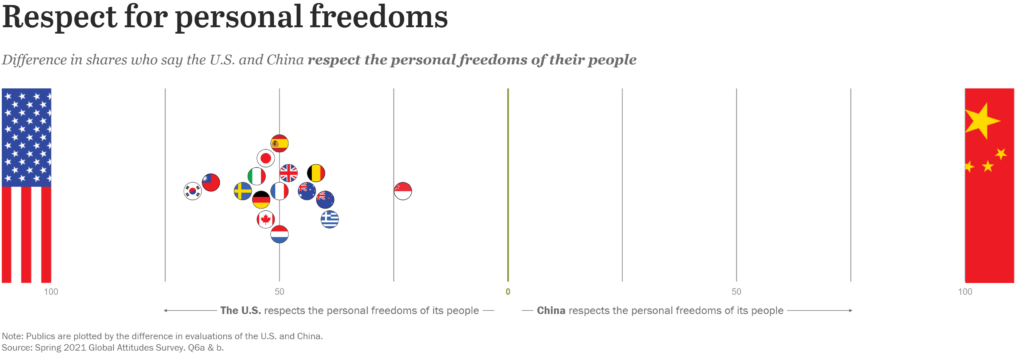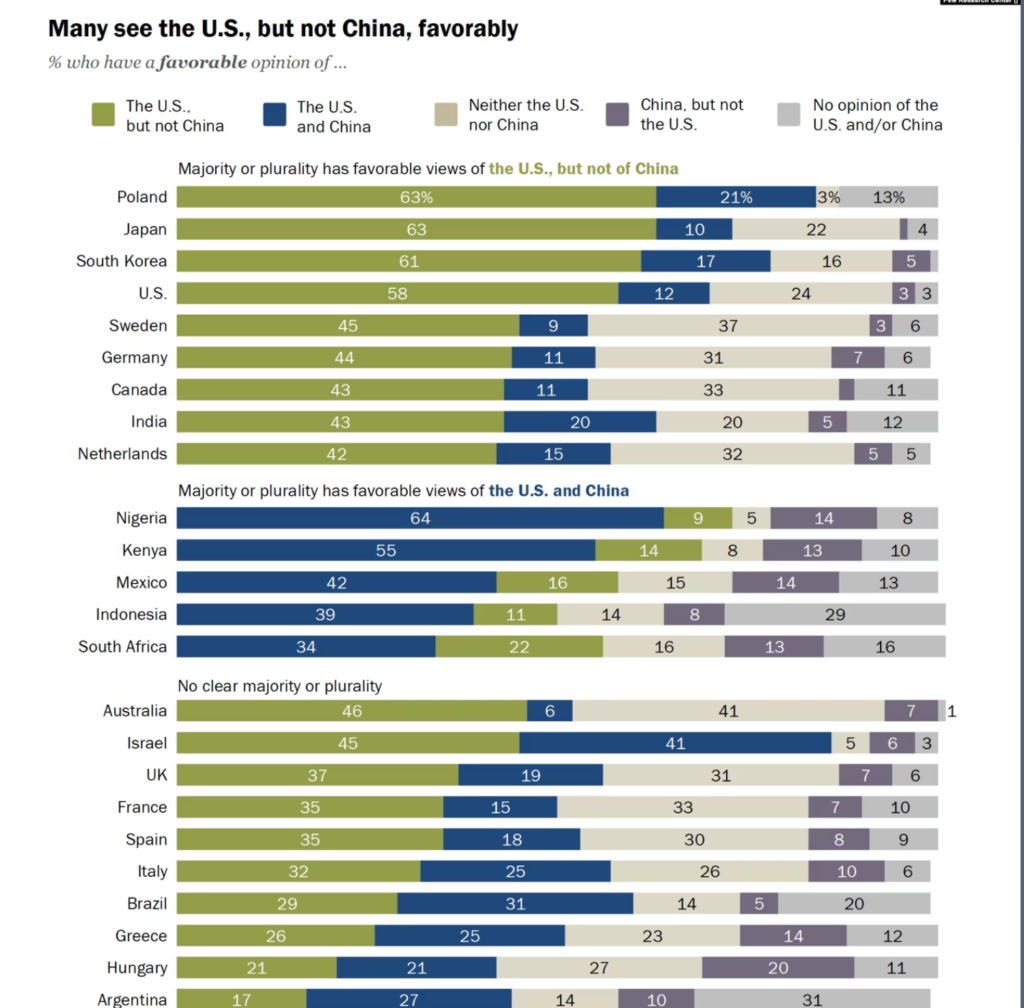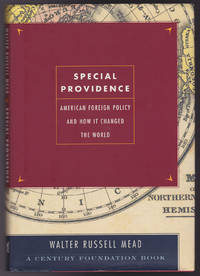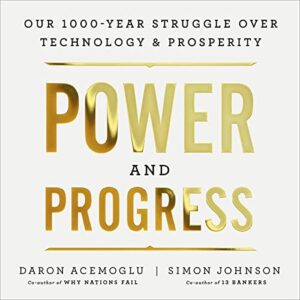 Ahead of the APEC Economic Leaders’ Week in San Francisco, where U.S. President Joe Biden and Chinese leader Xi Jinping are expected to meet, a study comparing views of China and the U.S. across 24 countries shows that people’s views of Washington are more favorable than those of Beijing, especially among high and middle-income countries, VOA reports:
Ahead of the APEC Economic Leaders’ Week in San Francisco, where U.S. President Joe Biden and Chinese leader Xi Jinping are expected to meet, a study comparing views of China and the U.S. across 24 countries shows that people’s views of Washington are more favorable than those of Beijing, especially among high and middle-income countries, VOA reports:
The new study released by Pew Research Center Monday, compares previously published views of the U.S. and China and highlights the differences across more than 10 measures, including confidence in U.S. and Chinese leaders, perception of their economic power and technological prowess. Countries featured in the study include advanced economies in North America and Europe, as well as middle-income countries in Asia Pacific, Latin America, and Africa.
“In a survey of 17 high-income publics in 2021, the U.S. government was far more likely than the Chinese government to be seen as respecting its people’s personal freedoms, and previous surveys of both high- and middle-income countries have recorded similar findings,” the survey finds. “The U.S. government was seen as more respectful of its people’s personal freedoms than China’s even as it received increasingly negative ratings between 2013 and 2018.”

Richard Turcsányi, an expert on Chinese foreign policy at Palacky University Olomouc in the Czech Republic says “high-income countries are more often than not U.S. allies, so they are comfortable with the current international order …They tend to be democratic and thus dislike China for its authoritarian system.”
He said middle-income countries are rarely traditional U.S. allies and they are often “not fully democratic,” so these countries want to change some things in the world to elevate their roles. “Many of them inhibit various dislikes and feelings of injustice, often targeting the U.S., Europe, and the West in general and China seems like an alternative. While they may not exactly like Beijing, the difference between the U.S. and China will be less pronounced in their eyes,” he told VOA.
 It’s partly due to the growing influence of autocracies like China that The Rules-Based International Order Is Quietly Disintegrating, according to a leading observer.
It’s partly due to the growing influence of autocracies like China that The Rules-Based International Order Is Quietly Disintegrating, according to a leading observer.
Recent geo-political developments are representative of a world “spinning out of control,” says Bard College Professor Walter Russell Mead. The current turbulence is a consequence of “A World Without American Deterrence,” he writes in the Wall Street Journal.
These developments have pitted liberals against so-called realists—who, in truth, are better described as “restrainers.” Yet both schools misunderstand the nature of modern power politics and thus risk disserving the nation as it confronts this new age of great-power rivalry, argues analyst Michael Lind.
Liberals in the Wilsonian tradition straddle both political parties. They hope that power politics can be replaced by international law and international organization. And they tend to interpret great-power rivalries as part of a larger ideological confrontation between liberal democracies—the wave of the future—and authoritarian regimes, he writes for Compact:
Whether human society in the future consists mostly of [1984’s] “mass of semi-slaves” depends on whether the wage-earning majorities in particular countries, by means of disciplined mass-membership institutions like political parties, labor unions, and religious organizations, are able to exercise countervailing power to restrain the “aristocracy of talent at the top.”
 But the only way to achieve a more stable global order is to ensure that genuinely democratic countries prosper, analysts Daron Acemoglu and Simon Johnson write for Project Syndicate.
But the only way to achieve a more stable global order is to ensure that genuinely democratic countries prosper, analysts Daron Acemoglu and Simon Johnson write for Project Syndicate.
Developing a more principled approach is essential. Otherwise, US claims to be defending democracy or human rights will continue to ring hollow. In contrast…
China owes its “comparative advantage” in manufacturing to repressive institutions. Chinese workers have few rights and often labor under dangerous conditions, and the state relies on subsidies and cheap credit to prop up its exporting firms….Contrary to what some social scientists and policymakers believed, economic growth has not made China any more democratic (two centuries of history show that growth based on extraction and exploitation rarely does).
What @NEDemocracy‘s @ThinkDemocracy calls @China‘s #sharppower seems to be taking a hit, according to the latest @pewresearch. https://t.co/2XCPsmLfhs
— Democracy Digest (@demdigest) November 6, 2023







